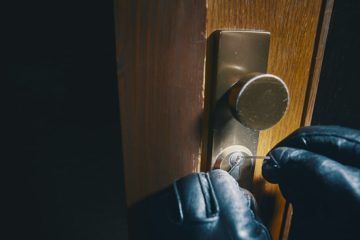When it comes to internet security, passwords are your first line of defense.
You do change your passwords regularly, right?
Yea, that is what I thought. Even with all my preaching about how important keeping up with security is, I am just as guilty of putting it off changing passwords. but, passwords are your first line of defense. I put it off because it is not just changing the password once. Like, when I change my password to my email address I have to change it on my phone, on my computers, etc. Changing Wifi passwords seems even worse because you have to update every device that is connected. ( That’s probably why people rarely change them) It is easy to get access to your stuff via wifi. You can check it yourself. The IP of most routers is 92.168.1.1. You can probably get the manufacturer of the router from there. A quick lookup of the manufacturer and get their default username and password which is something crazy like “admin” and “password”. It is amazing how often I see this. So, I know I should change passwords more often. I don’t. But, I’m getting better.
Some things we can do to help manage your passwords and security.
There are a few considerations when managing your passwords
- How vulnerable are we? Is it an online banking password? Is it a password for an account that has a lot of access to all your other accounts like your email address?
- Thinking of passwords that are secure and conform to all the different criteria that web developers establish with the # of characters, caps and no caps, number and/or special characters. You know the drill.
- How do we remember them or how do we store them easily and securely while allowing quick retrieval?
- How often should we change them?
- How unique is each password for each site?
A few ways to check your current exposure.
There is a site that monitors data breaches where your information may have been compromised. Have I Been Pawned is a site where you can take your email address and check to see if your account has been compromised in past data breaches. If so, you should change that password immediately.
To check your website, Mozilla released a free tool called Observatory To access the security on your website.
To check your browser you can visit Qualys Browser Check
To make passwords easier to manage, you can use different tricks that help you remember strong passwords.
One technique that I like is to think of a nonsensical sentence and play with the words and letters. I’ll give you an example: ” liteROCKS2fly” It is complex, varied, and easy to remember because it is nonsensical- Rocks are not light and they don’t fly.
Another way I feel comfortable with this is by using password managers. They generally have tools to create passwords, store them securely, and may even autofill the username and password for you. There are two that I like, Keepass which is like an old friend, and my current new workhorse is LastPass. For other suggestions, follow this link to Lifehacker: https://lifehacker.com/5529133/five-best-password-managers



